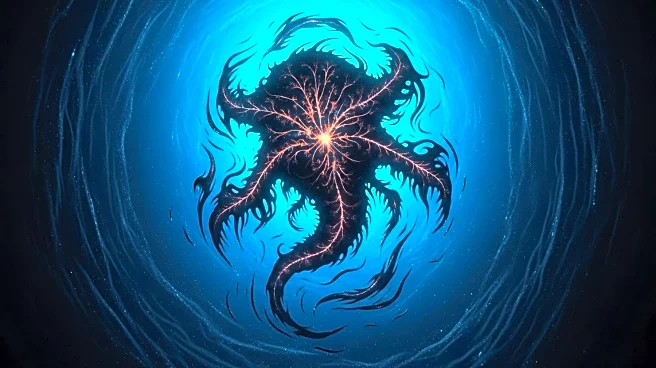What's Happening?
The deep-sea worm Paralvinella hessleri has been discovered to thrive in highly toxic environments by storing arsenic in its skin cells. This adaptation allows the worm to survive in extreme conditions near hydrothermal vents. The discovery sheds light on the unique survival mechanisms of deep-sea organisms.
Why It's Important?
The worm's ability to withstand toxic conditions provides insights into the resilience of life in extreme environments. It may inform research on bioremediation and the potential for organisms to adapt to changing environmental conditions. The findings contribute to our understanding of biodiversity and the complexity of marine ecosystems.











